The boss of the London Olympics has been drafted in to help ministers scrambling to solve the personal protective equipment (PPE) crisis in UK hospitals.
Unions warned NHS staff could walk out rather than work on coronavirus wards without gowns on Saturday, amid concerns supplies would not last the weekend.
As anger over the shortages grew, the Unite union suggested health secretary Matt Hancock should resign unless more PPE was urgently found.
Download the new Independent Premium app
Sharing the full story, not just the headlines
Robert Jenrick, the communities secretary, said during Saturday’s Downing Street briefing that a large consignment, including 400,000 gowns, was due to arrive in the UK from Turkey on Sunday – due to high demand, this may only last a few days.
But he admitted ministers had “got to do more” to get protective kit to NHS staff.
Appearing alongside Mr Jenrick at the Downing Street daily press conference Professor Stephen Powis, the medical director of NHS England, made a plea on behalf of NHS staff.
He said he knew ministers were working “incredibly hard”, but he added: “What I hear from my clinical colleagues is that what they need is PPE delivered to the frontline.”
Lord Paul Deighton, the chief executive of the 2012 Olympic games, will drive a push to make more PPE available in the UK, amid a global shortage.
Mr Hancock compared Lord Deighton to Lord Beaverbrook, who spearheaded Britain’s wartime aircraft production, and said he would “bring renewed drive and focus to this unprecedented peacetime challenge”.
Lord Deighton said his single goal would be to get NHS staff “the essential equipment they need”.
UK companies including Rolls-Royce, McLaren, Ineos and Diageo have already started work to produce equipment including visors, gowns and hand sanitisers.
The government defended its record on PPE by saying it had already delivered almost 1 billion pieces of equipment around the UK since the outbreak began.
The latest news on Brexit, politics and beyond direct to your inbox
But amid growing concerns about NHS staff asked to risk their lives without proper protection, Unite assistant general secretary Gail Cartmail said Mr Hancock should “sort out the logjam in PPE supplies urgently, otherwise he may have to consider his position”.
Workers would be “quite right” to refuse to put themselves in danger, she added, even though it went against “every instinct in their body”.
On Friday evening in a major shift, doctors and nurses were asked to treat patients without full-length waterproof gowns, where necessary, and even use plastic aprons as an alternative.
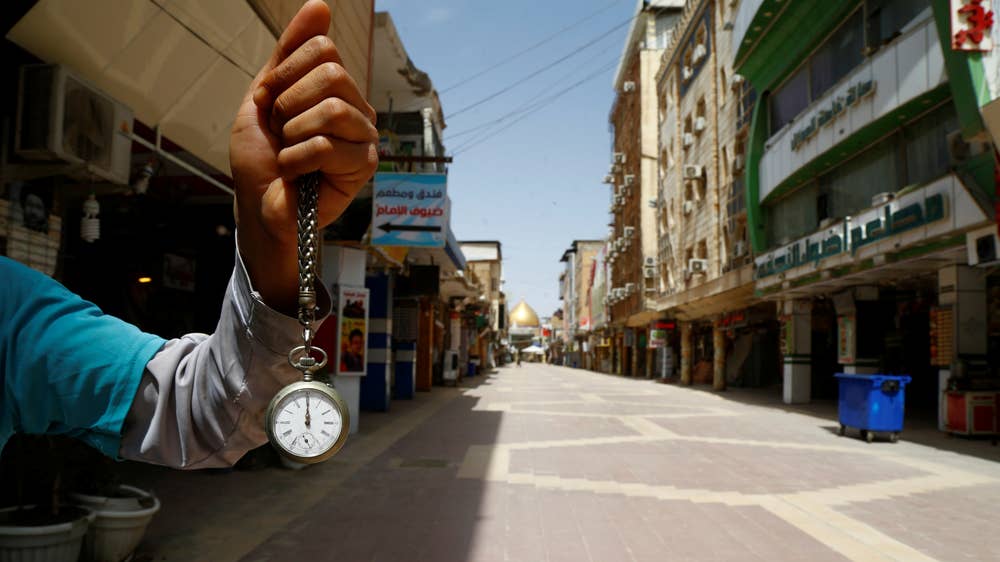
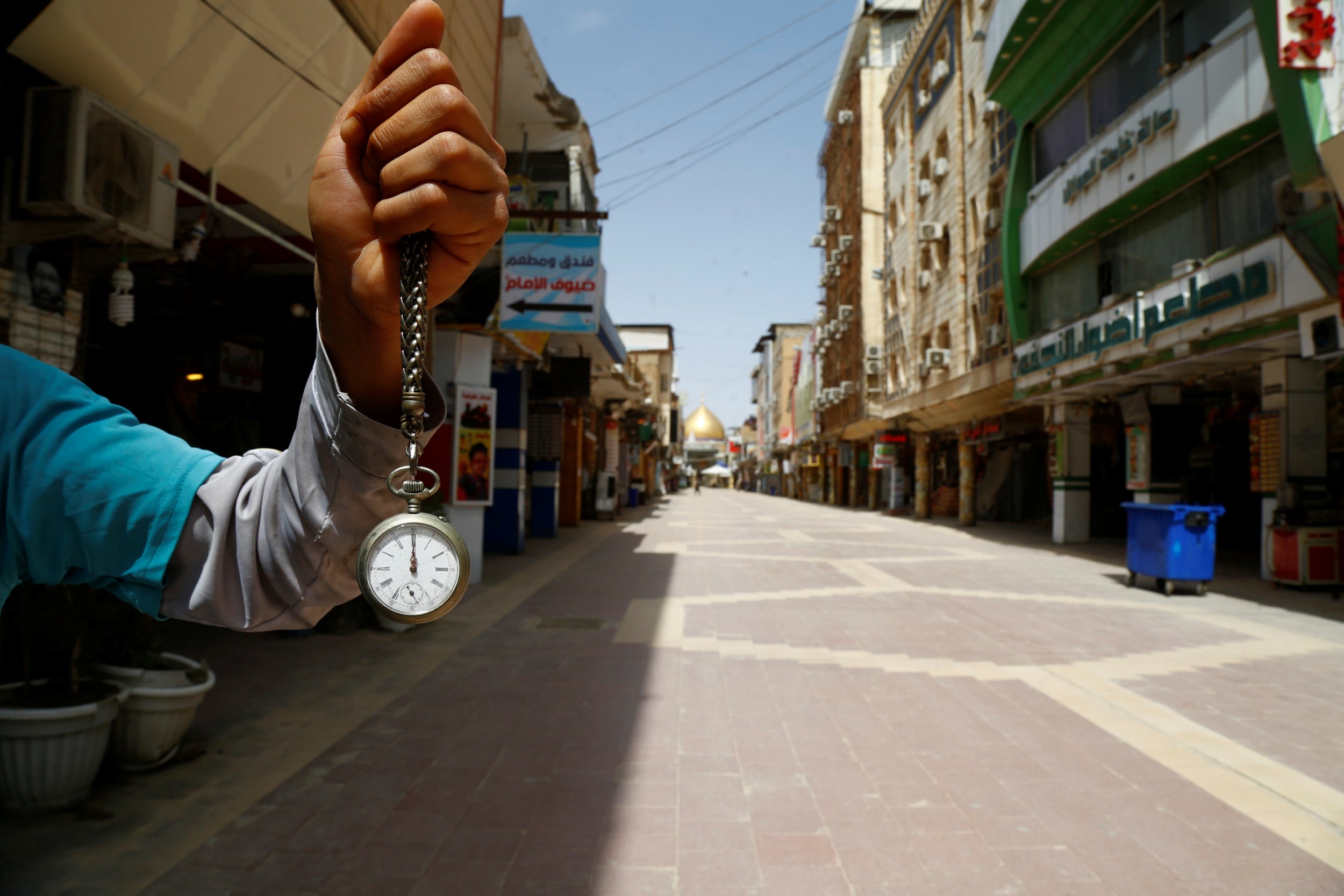
1/18 Najaf, Iraq
A man holds a pocket watch at noon, at an almost empty market near the Imam Ali shrine
Reuters
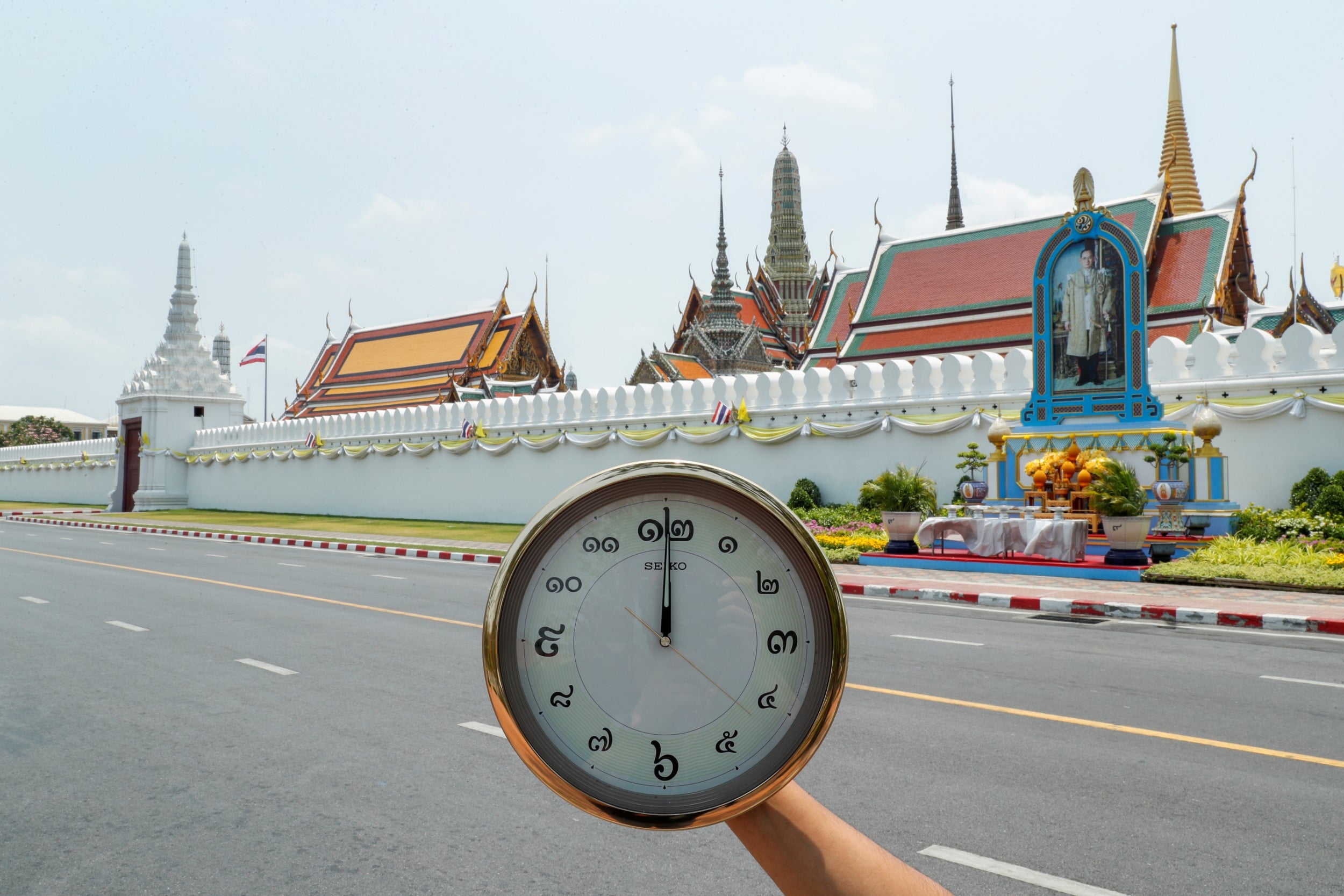
2/18 Bangkok, Thailand
Wat Phra Si Rattana Satsadaram (The Temple of the Emerald Buddha, part of The Grand Palace)
Reuters

3/18 Prague, Czech Republic
An empty street leading to the historic Old Town Square
Reuters
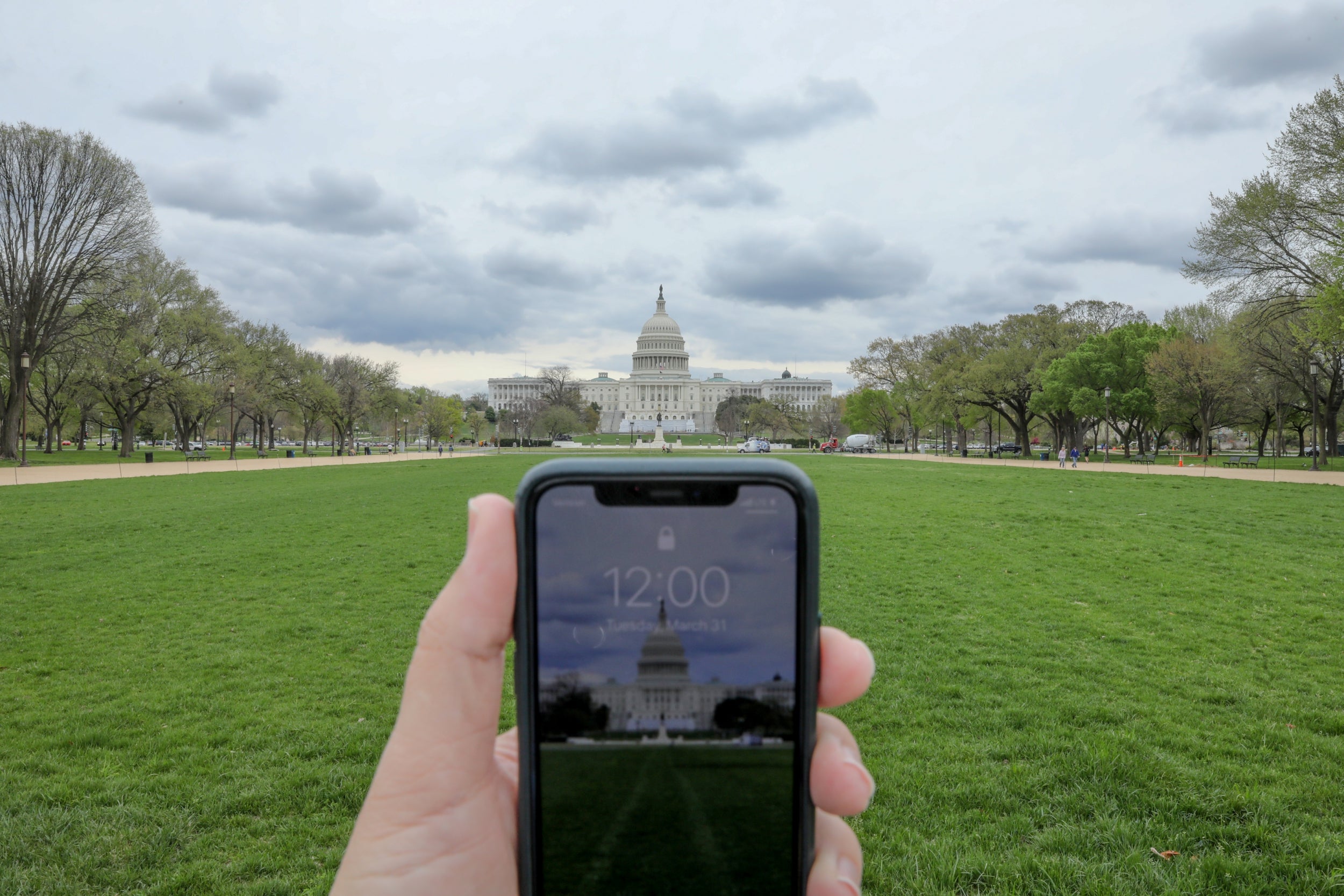
4/18 Washington DC, US
Lawn stretching towards the Capitol, home of Congress
Reuters

5/18 Jerusalem’s Old City
A watch showing the time in front of Damascus Gate
Reuters
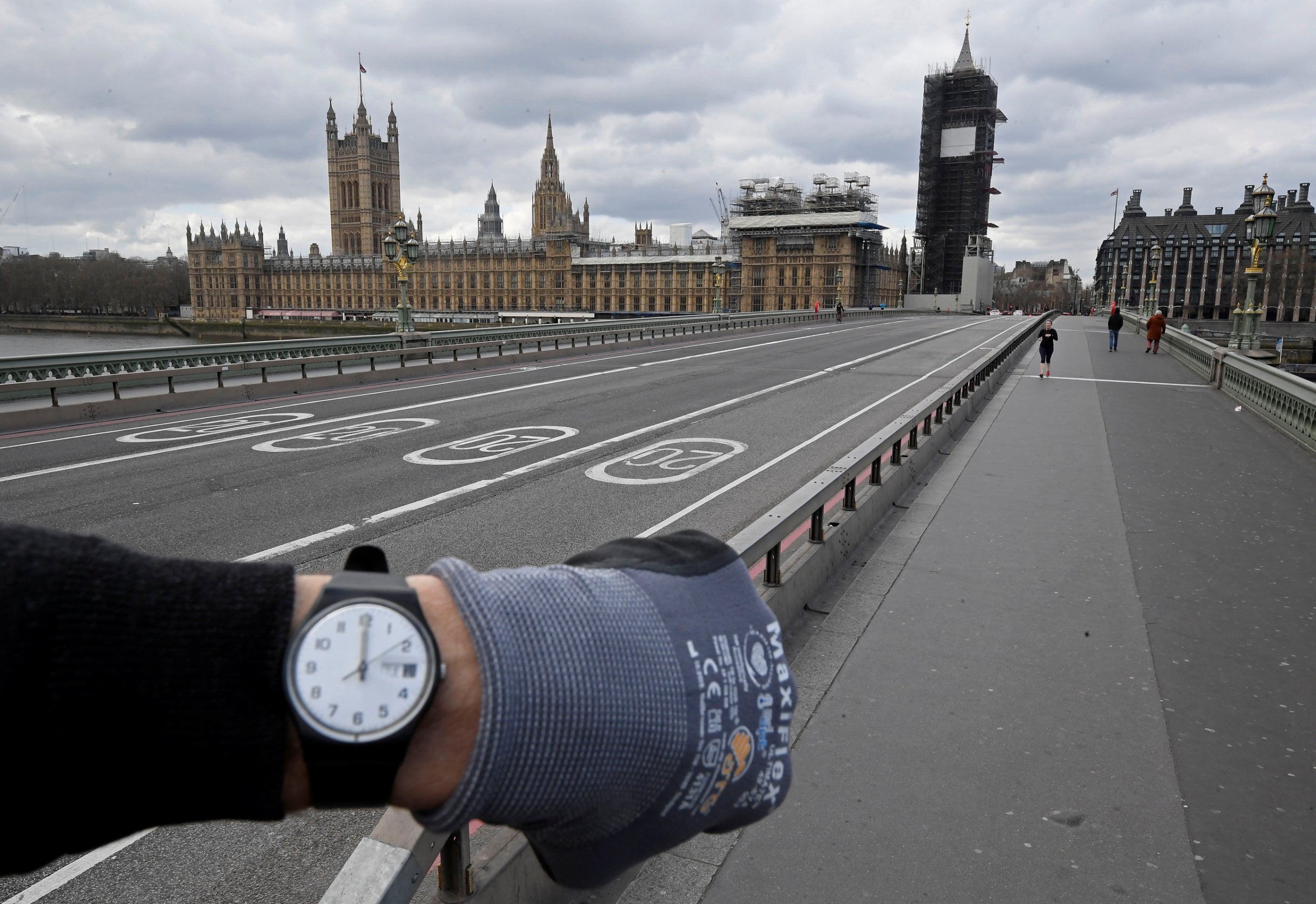
6/18 London, UK
The Houses of Parliament seen from Westminster Bridge
Reuters
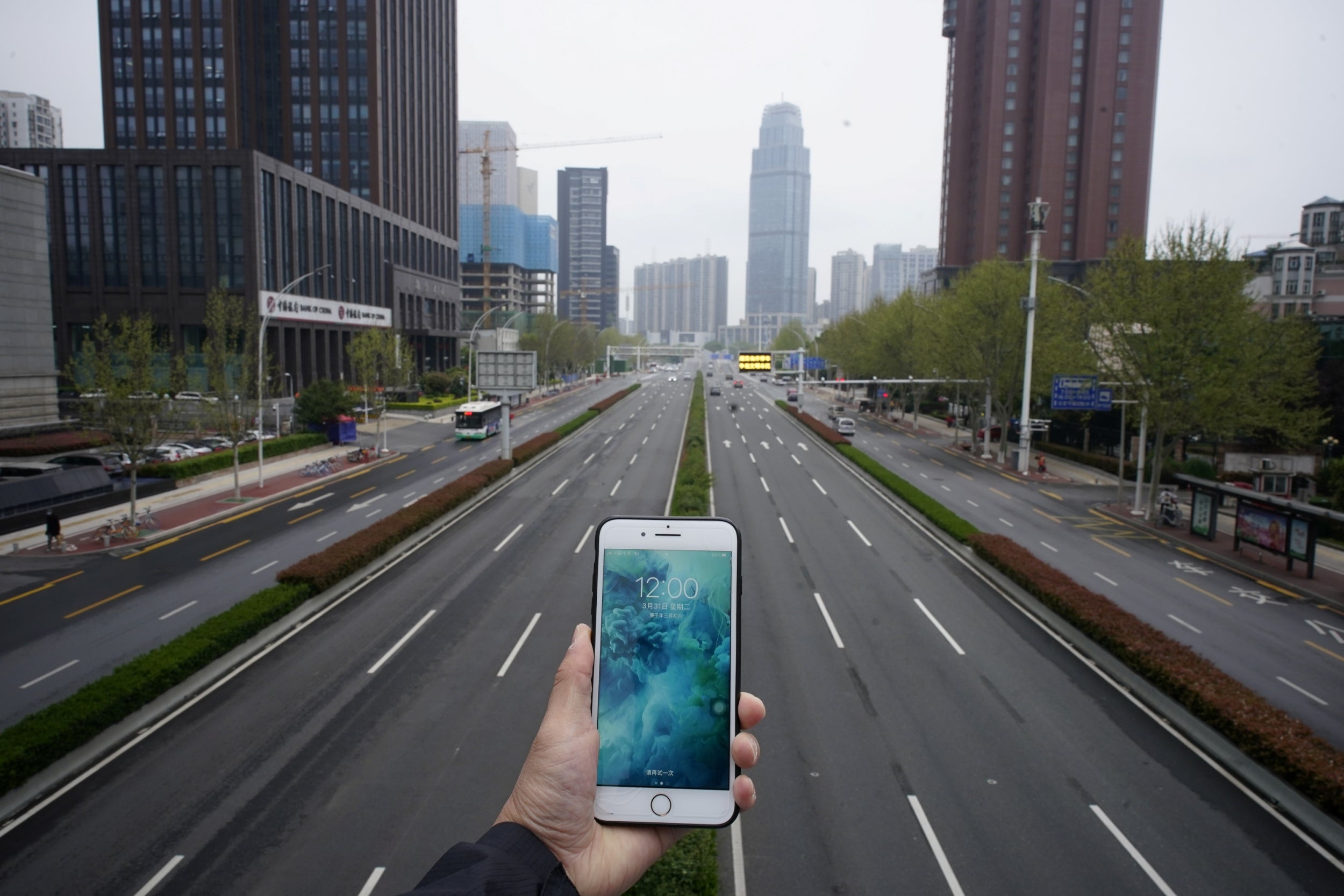
7/18 Wuhan, China
Empty lanes in the city that saw the first outbreak of disease
Reuters
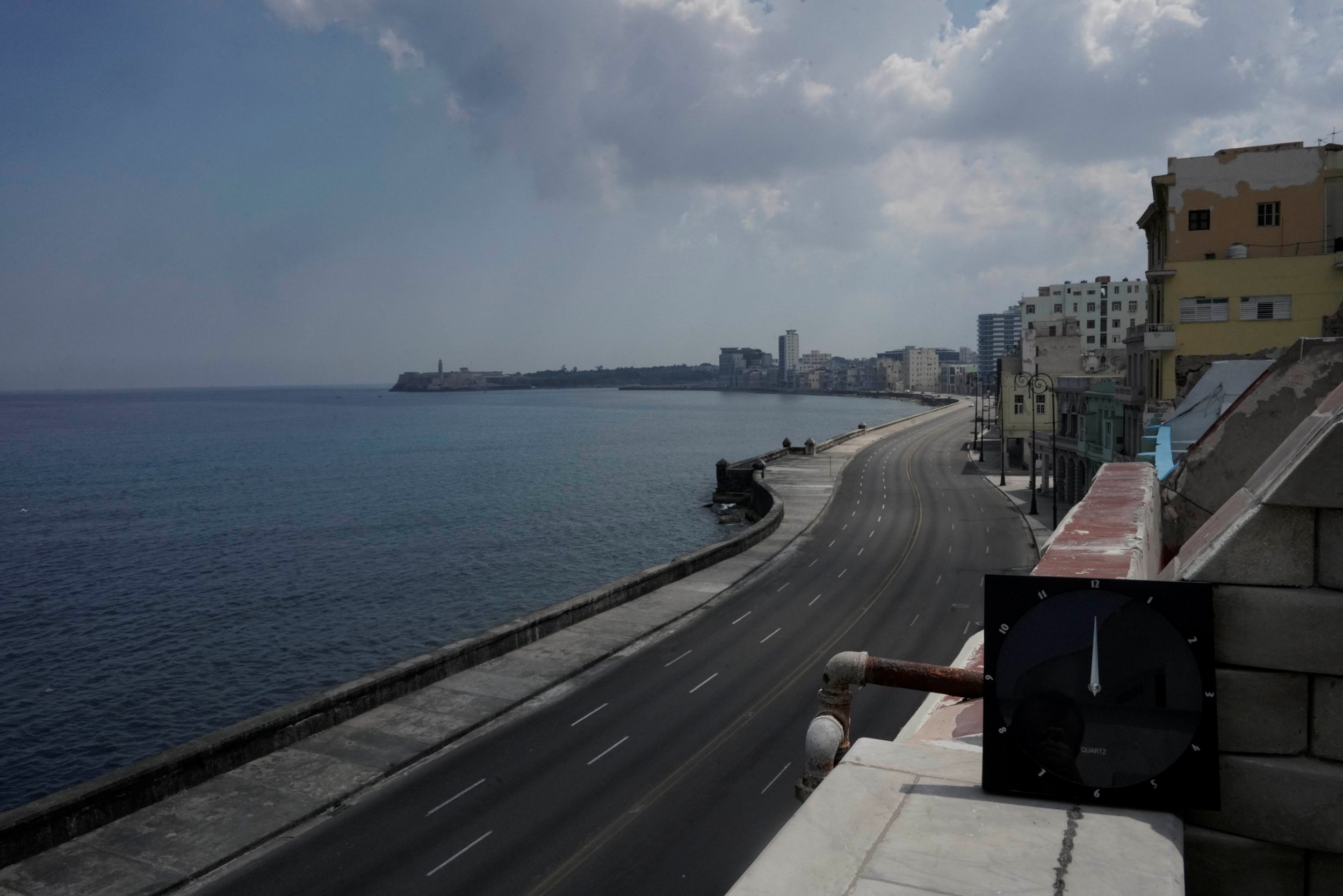
8/18 Havana, Cuba
The Malecon road and esplanade winds along the city’s seafront
Reuters
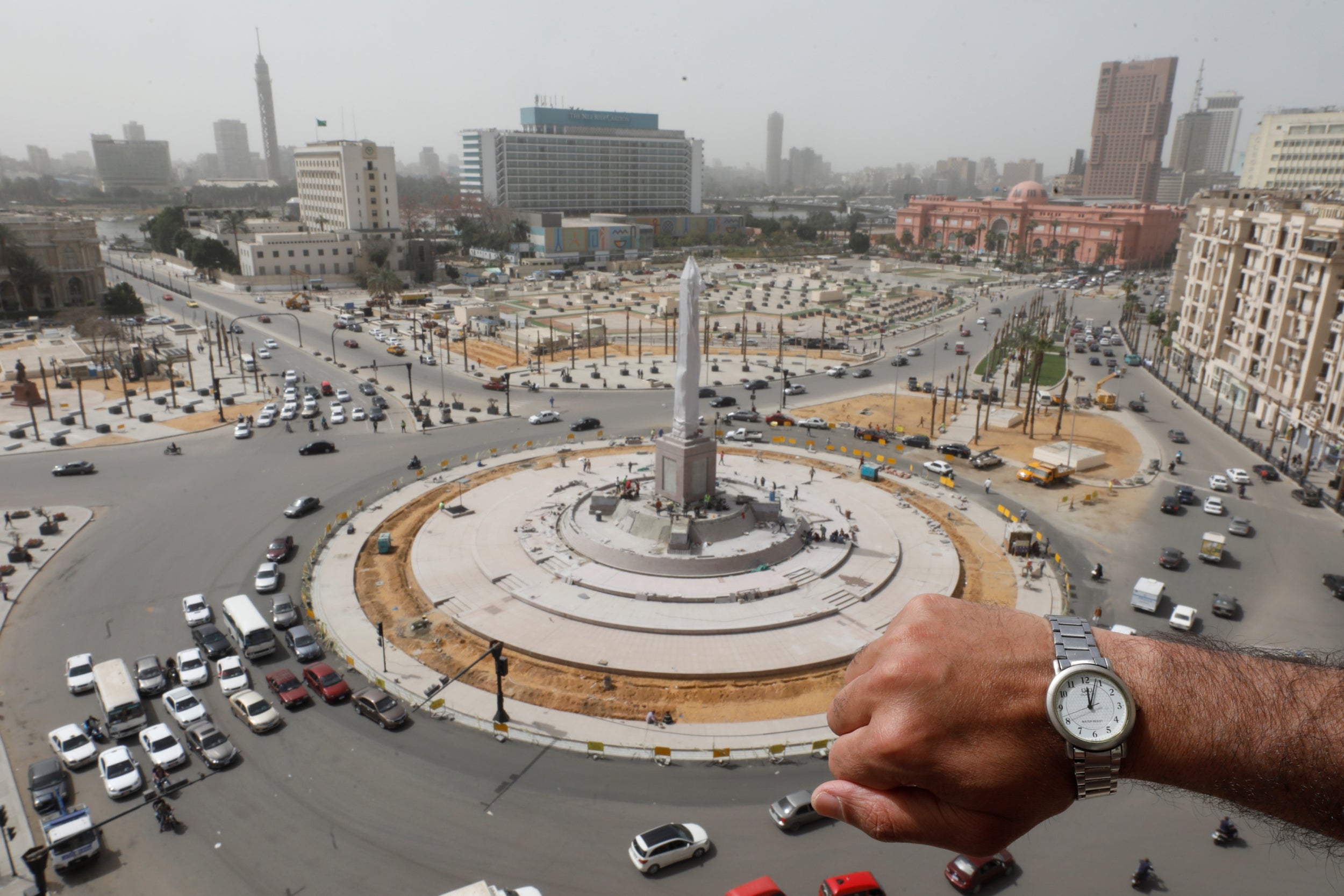
9/18 Cairo, Egypt
A little busier than elsewhere: midday traffic in Tahrir Square
Reuters
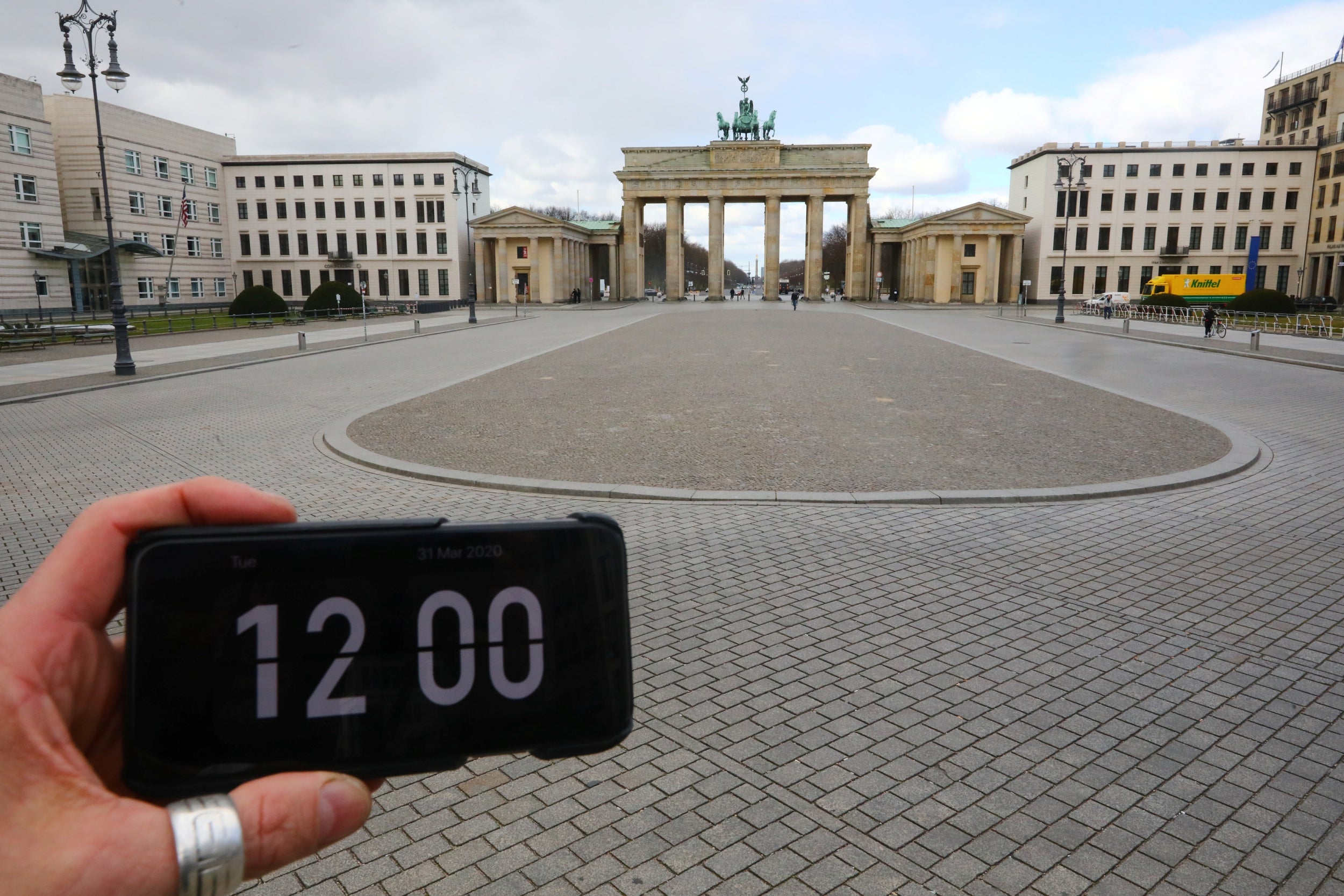
10/18 Berlin, Germany
The Brandenburg Gate, the only surviving city gate in the capital
Reuters
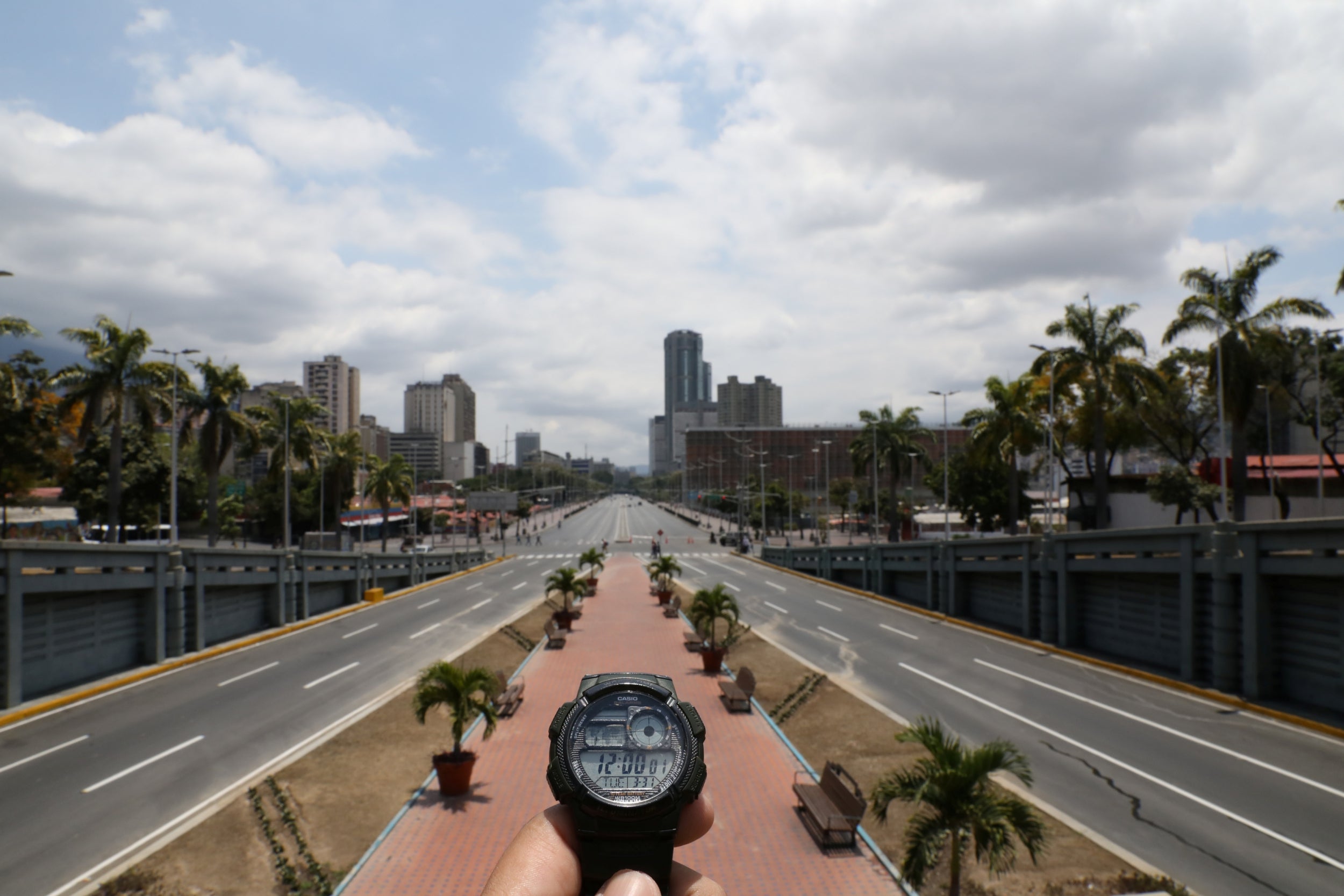
11/18 Caracas, Venezuela
Bolivar Avenue, opened in 1949 and the site of many demonstrations and rallies
Reuters
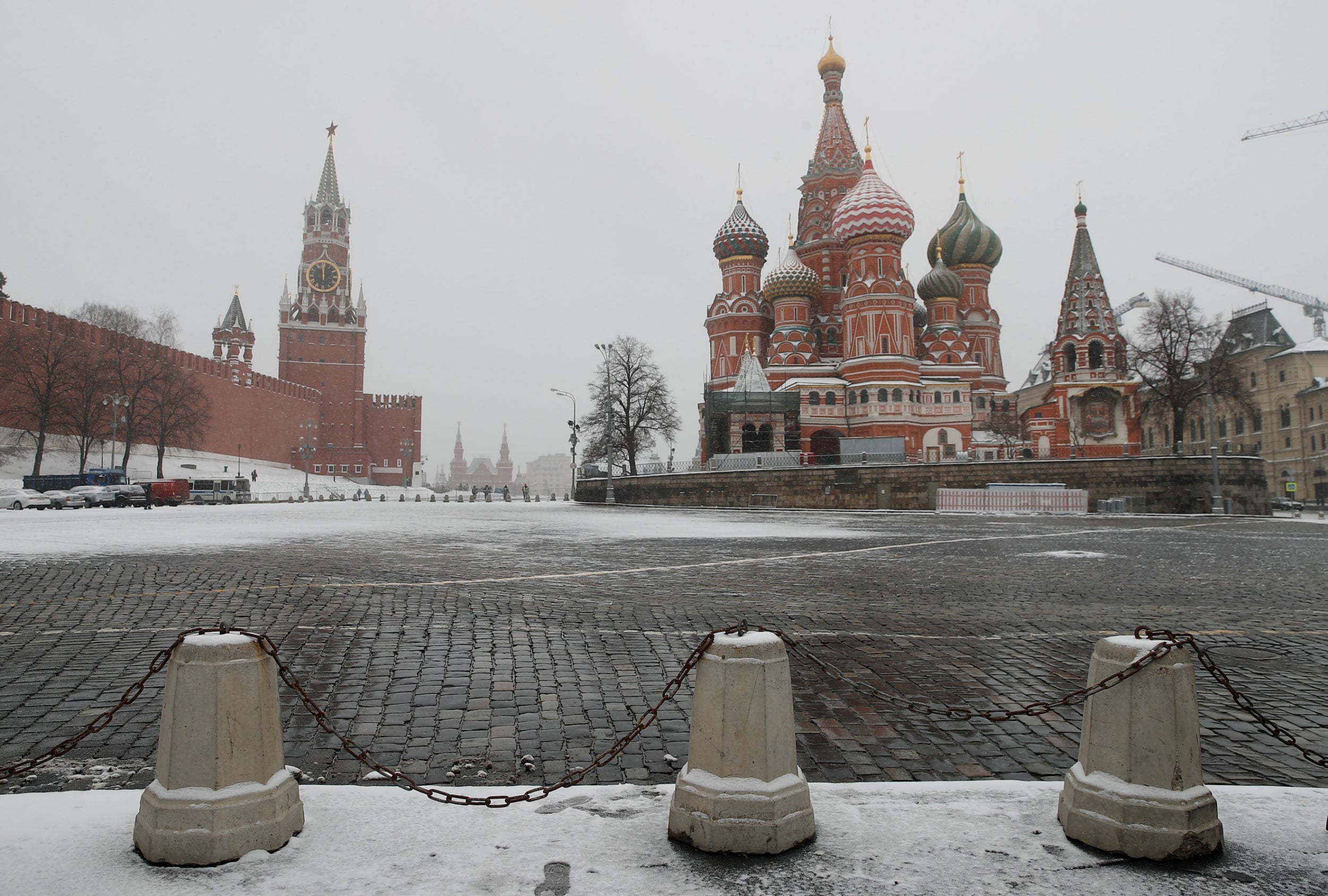
12/18 Moscow, Russia
Spasskaya Tower (left) on the eastern wall of the Kremlin, and St Basil’s Cathedral
Reuters
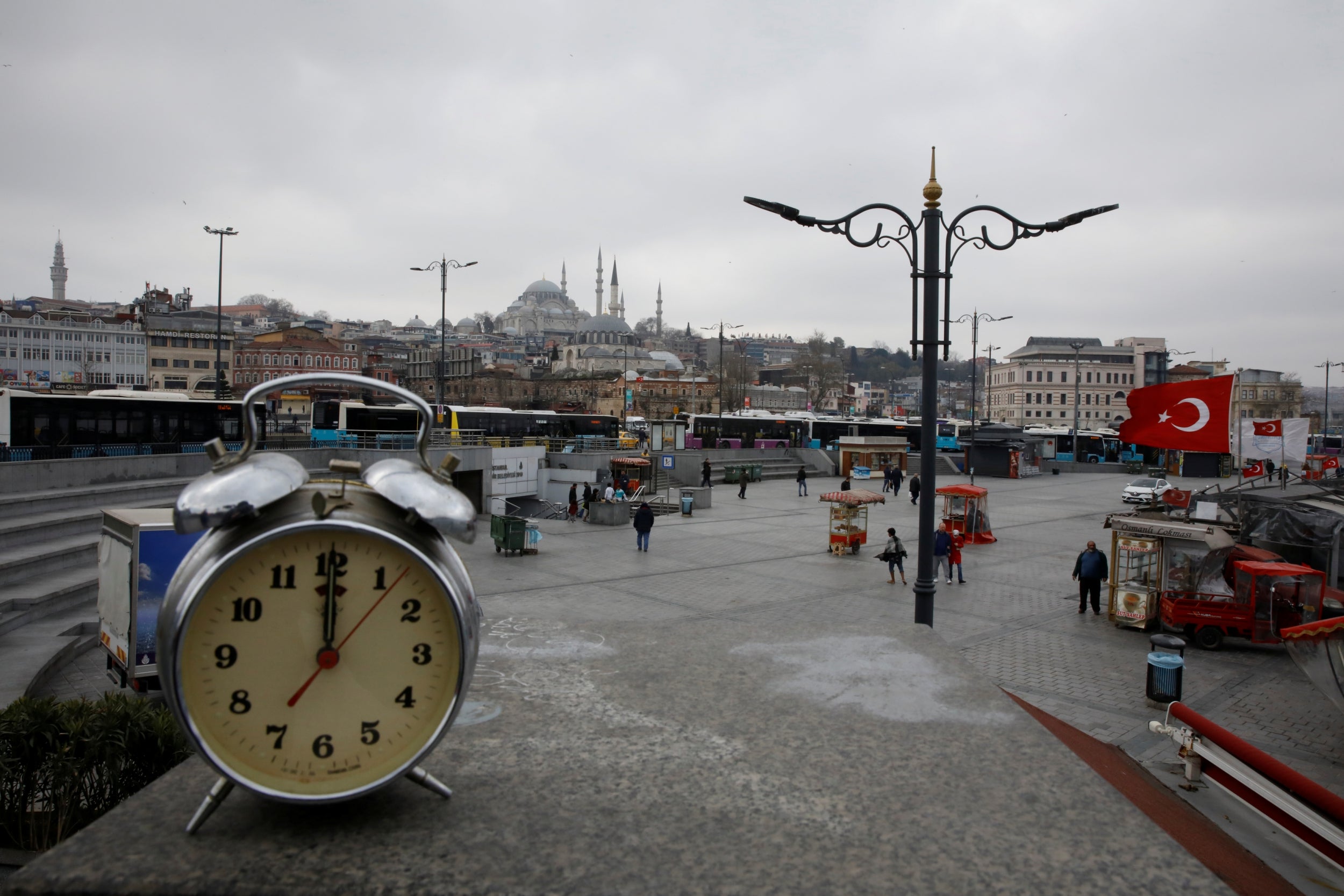
13/18 Istanbul,Turkey
The harbourside Eminonu district is usually buzzing with activity
Reuters
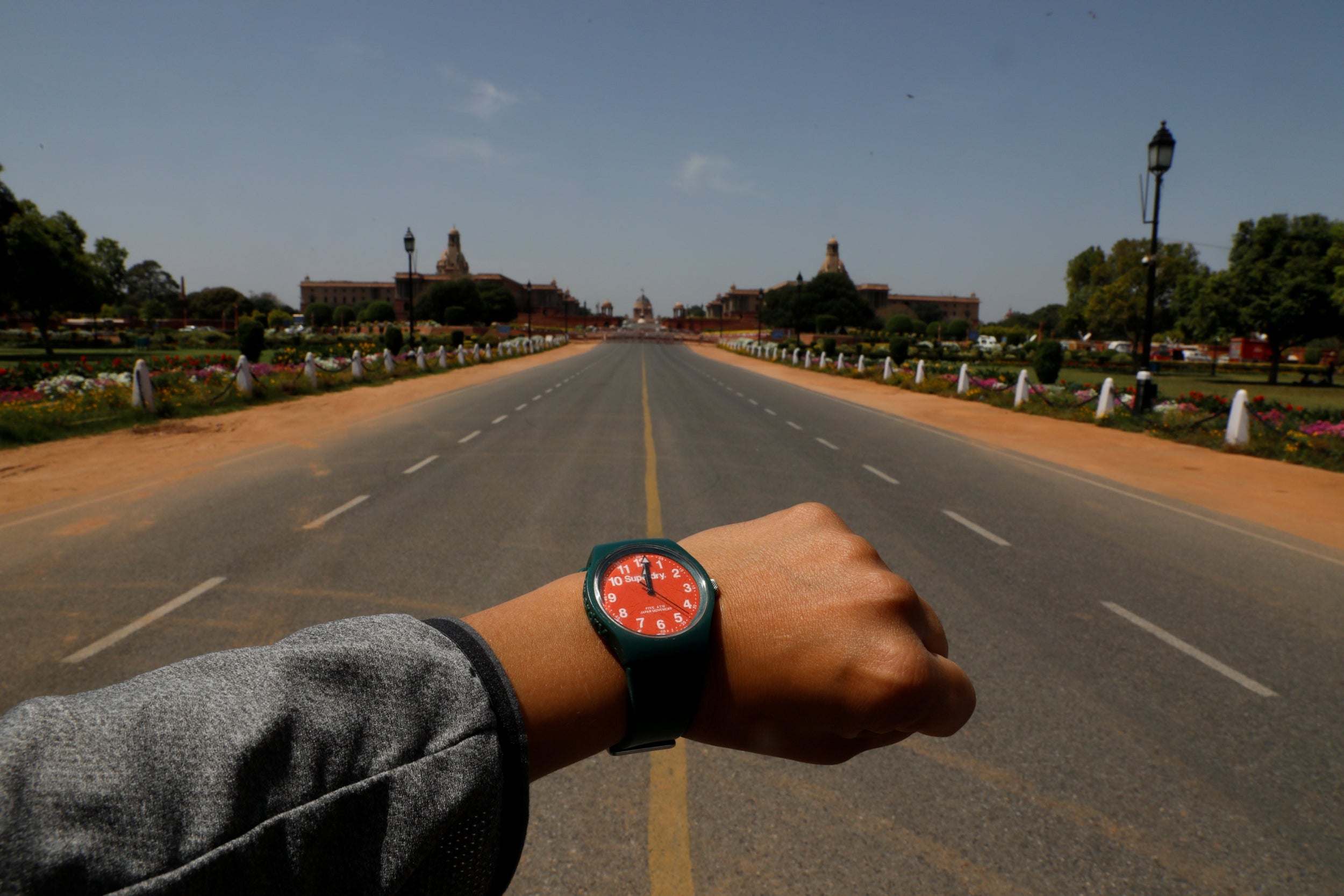
14/18 New Delhi, India
Rajpath, a ceremonial boulevard that runs through the capital
Reuters
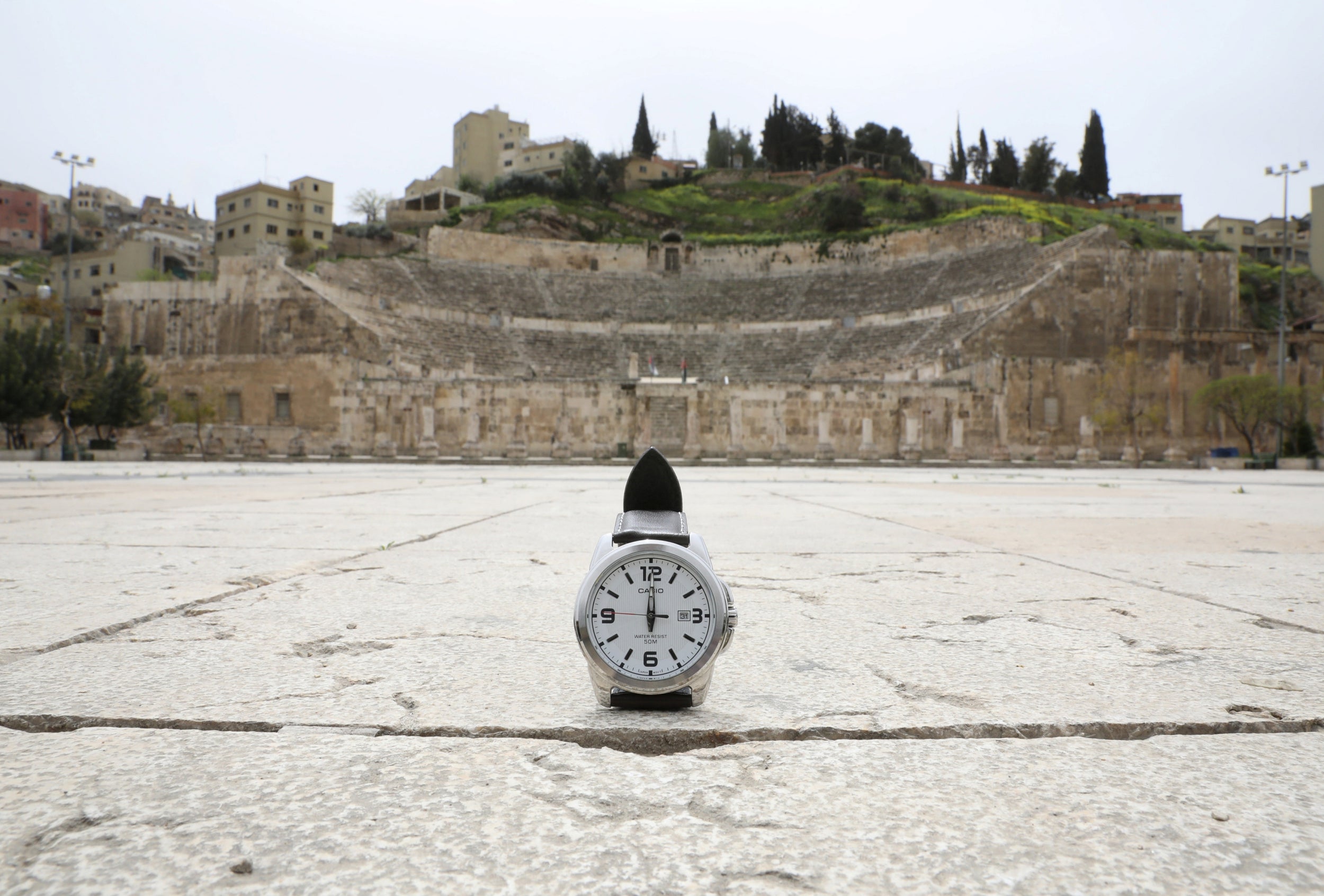
15/18 Amman, Jordan
The Roman amphitheatre that dates back to the 2nd century AD
Reuters

16/18 New York City, US
The main concourse of Grand Central station in Manhattan
Reuters
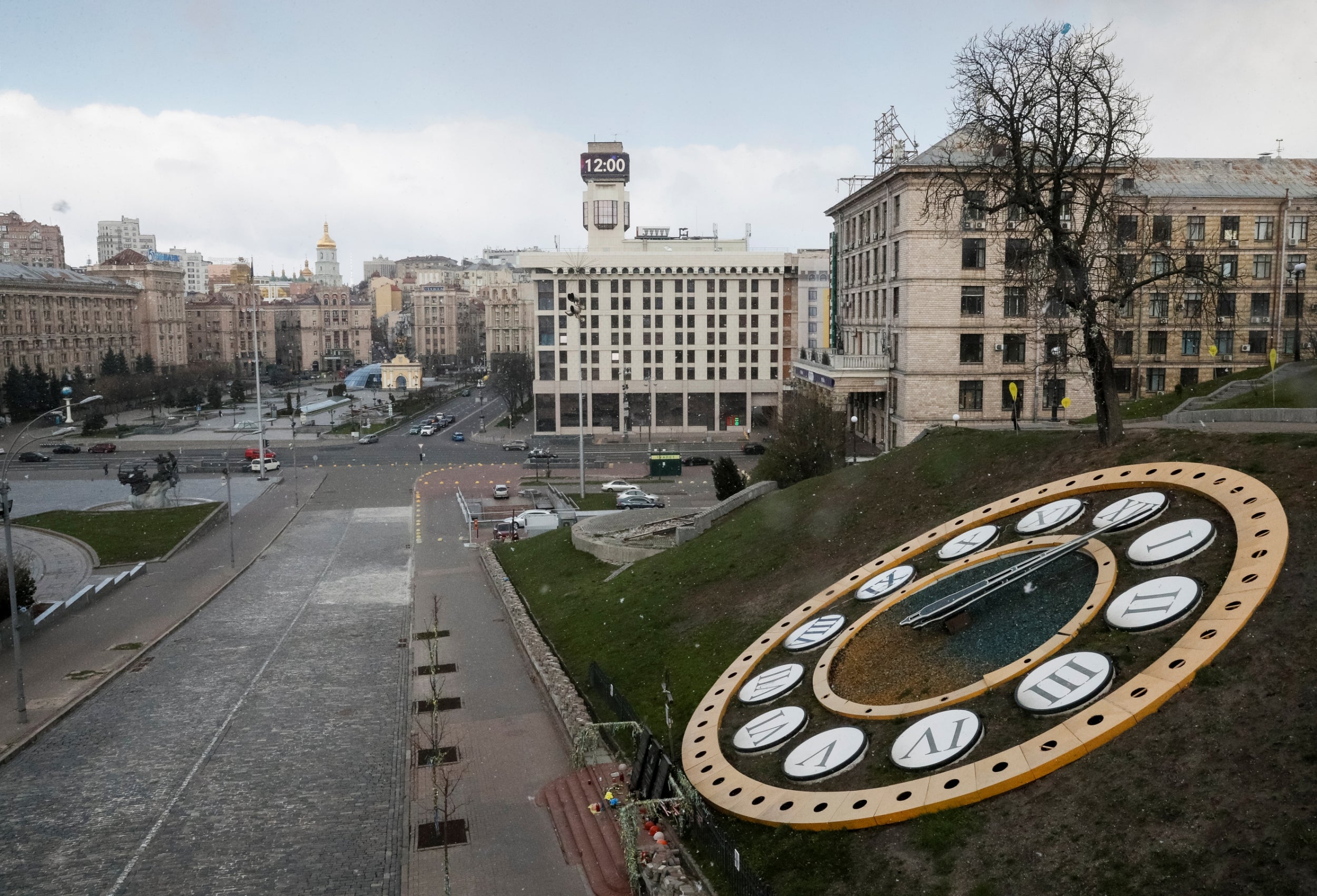
17/18 Kiev, Ukraine
Maidan Nezalezhnosti, the site of many political protests since the end of the Soviet era
Reuters
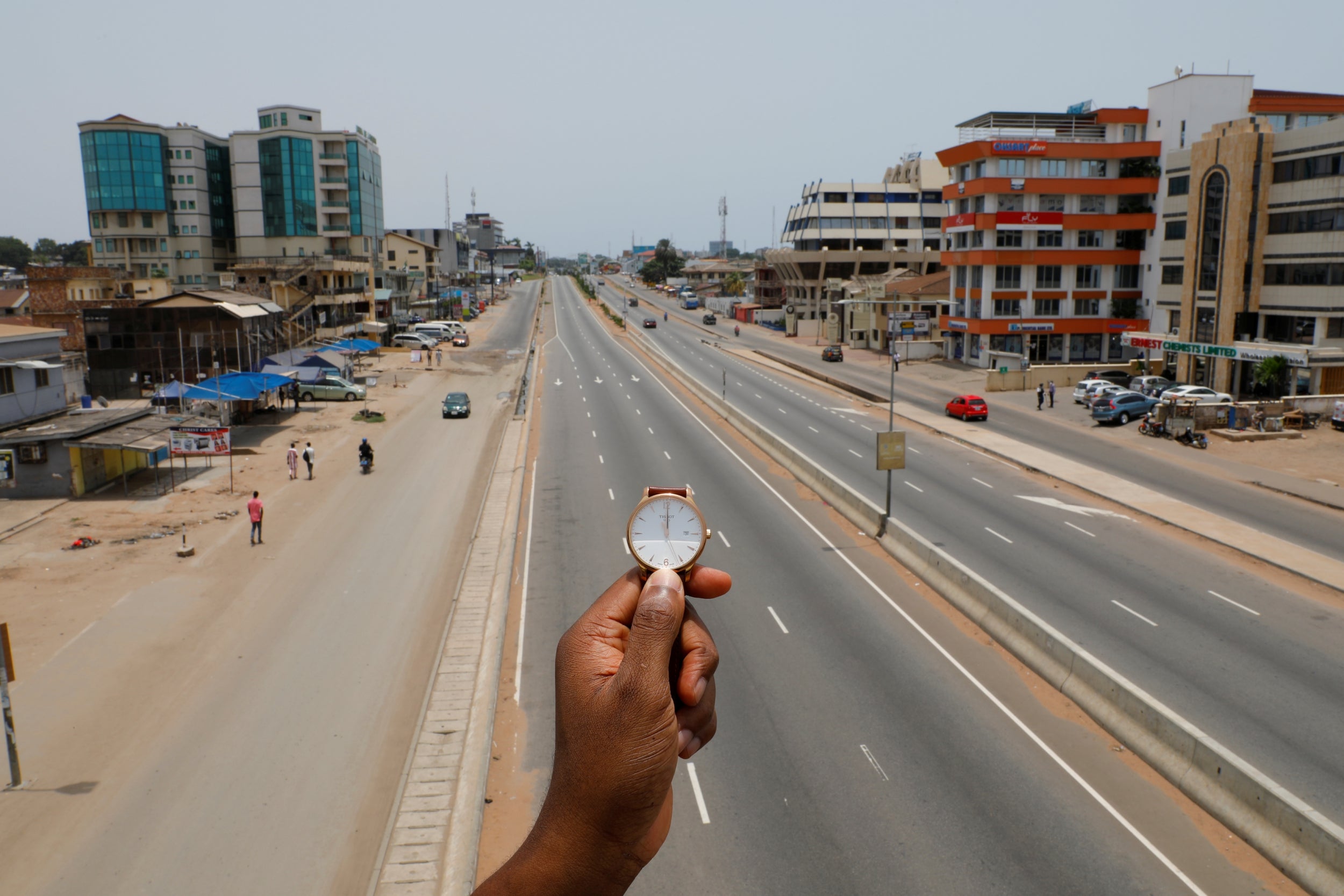
18/18 Accra, Ghana
The odd walker out in the midday sun on Ring Road Central
Reuters

1/18 Najaf, Iraq
A man holds a pocket watch at noon, at an almost empty market near the Imam Ali shrine
Reuters

2/18 Bangkok, Thailand
Wat Phra Si Rattana Satsadaram (The Temple of the Emerald Buddha, part of The Grand Palace)
Reuters

3/18 Prague, Czech Republic
An empty street leading to the historic Old Town Square
Reuters

4/18 Washington DC, US
Lawn stretching towards the Capitol, home of Congress
Reuters

5/18 Jerusalem’s Old City
A watch showing the time in front of Damascus Gate
Reuters

6/18 London, UK
The Houses of Parliament seen from Westminster Bridge
Reuters

7/18 Wuhan, China
Empty lanes in the city that saw the first outbreak of disease
Reuters

8/18 Havana, Cuba
The Malecon road and esplanade winds along the city’s seafront
Reuters

9/18 Cairo, Egypt
A little busier than elsewhere: midday traffic in Tahrir Square
Reuters

10/18 Berlin, Germany
The Brandenburg Gate, the only surviving city gate in the capital
Reuters

11/18 Caracas, Venezuela
Bolivar Avenue, opened in 1949 and the site of many demonstrations and rallies
Reuters

12/18 Moscow, Russia
Spasskaya Tower (left) on the eastern wall of the Kremlin, and St Basil’s Cathedral
Reuters

13/18 Istanbul,Turkey
The harbourside Eminonu district is usually buzzing with activity
Reuters

14/18 New Delhi, India
Rajpath, a ceremonial boulevard that runs through the capital
Reuters

15/18 Amman, Jordan
The Roman amphitheatre that dates back to the 2nd century AD
Reuters

16/18 New York City, US
The main concourse of Grand Central station in Manhattan
Reuters

17/18 Kiev, Ukraine
Maidan Nezalezhnosti, the site of many political protests since the end of the Soviet era
Reuters

18/18 Accra, Ghana
The odd walker out in the midday sun on Ring Road Central
Reuters
But surgeons are among the health professionals that have been advised not to risk their health without adequate PPE.
The Royal College of Surgeons of England said it was “deeply disturbed’’ by the changes to the official guidance.
Sara Gorton, head of health at the union Unison, urged health managers to be honest with their staff in the coming days, adding: “If gowns run out, staff in high-risk areas may well decide that it’s no longer safe for them to work”.
Plans to increase production of PPE in the UK were outlined by Mr Hancock last week.



